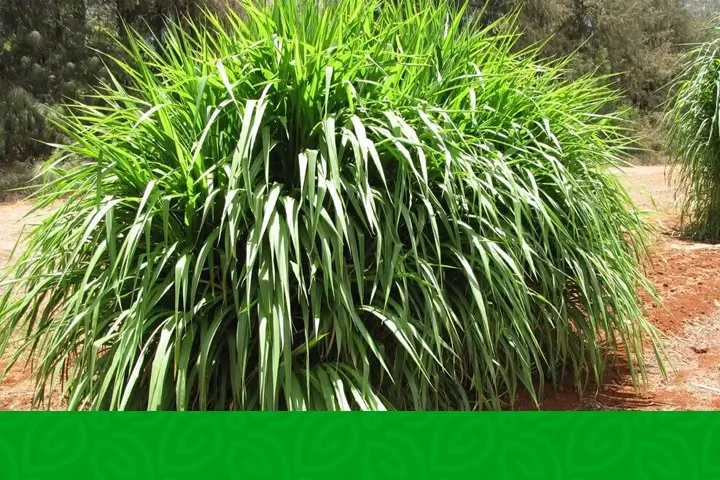
Revolutionizing Kenya’s dairy industry: Meet the high-yield nutrient-dense napier grass varieties transforming the dairy landscape in arid regions.
In the arid and semi-arid landscapes of Kenya, dairy farmers have long grappled with the challenge of feed and fodder scarcity. The quest for sustainable solutions has led to a remarkable transformation at WILDA Farm, nestled in the heart of the parched Lare Division in Njoro, Nakuru. Amidst extreme weather fluctuations and limited precipitation, this pioneering farm is proving that regenerative agriculture practices and innovative Napier grass varieties hold the key to dairy excellence and climate resilience.
Nurturing Dairy Success: Harnessing the Power of Innovation
Dr. Harun Warun, co-owner of WILDA Farm, is leading the charge in leveraging two innovative Napier grass varieties – JunCao and PangChong F1 – to revolutionize dairy farming. This dynamic approach not only uplifts the dairy sector but also aligns with Kenya’s climate agenda. These Napier grass varieties stand as crucial assets for small-scale farmers and pastoralist communities in challenging regions.
Dr. Warun emphasizes that these high-yielding Napier grass varieties offer much more than sustenance – they are catalysts for dairy excellence and sustainability. With their resilience against harsh conditions and abundant forage production, JunCao and PangChong F1 are game-changers for farmers.
A Nutritional Boost: Elevating Dairy Quality and Yields
The nutritional prowess of JunCao and PangChong F1 is a remarkable feat. These Napier grass varieties offer a comprehensive diet for dairy cattle, translating to enhanced milk quality and higher yields. This nutritional richness reduces the need for costly supplementary concentrates, rendering dairy farming more economically viable and sustainable.
JunCao, a Chinese Napier grass variety, boasts an impressive protein content of 13 to 15 percent and offers a farmer-friendly approach. PangChong F1, also known as super Napier, stands as a high-yield, nutrient-dense alternative with up to 18 percent crude protein, dependent on soil conditions.
A Bounty of Benefits: From Resilience to Emission Reduction
The impact of JunCao and PangChong F1 extends beyond nutrition. These Napier grass varieties exhibit resilience in the face of climate challenges, reducing the dependency on concentrates by 50 percent and curbing the financial burden on farmers. Moreover, their biomass production potential reaches up to 180 tons per acre per annum, offering a substantial feed solution.
As the world grapples with the effects of global warming, the climate-resilient attributes of these Napier grass varieties offer a silver lining. The nappier serves as a buffer against climate change’s impacts, providing consistent forage and minimizing soil degradation.
A Beacon of Agricultural Synergy: Regenerative Approach for Resilience
WILDA Farm’s approach exemplifies the synergy between dairy farming and regenerative agriculture principles. By incorporating Napier varieties into regenerative practices, the farm showcases agriculture’s potential to combat climate change. Dr. Warun underscores that this approach aligns seamlessly with Kenya’s climate agenda, bolstering the nation’s climate adaptation efforts.
Embracing a Sustainable Dairy Future
Dr. Warun’s vision resonates far beyond WILDA Farm. The introduction of these high-yield, nutrient-dense, and climate-resilient Napier grass varieties signifies a turning point for Kenya’s dairy landscape. As the nation emerges from the aftermath of a prolonged drought that ravaged livestock, these varieties hold the promise of resilience, sustainability, and prosperity.
By adopting these innovative Napier grass varieties, dairy farmers become climate change warriors, actively contributing to Kenya’s emission reduction goals. Reduced methane emissions during digestion, coupled with sustainable practices, position dairy farming as a sustainable sector within Kenya.
A Transformative Path Ahead
WILDA Farm’s pioneering journey with JunCao and PangChong F1 sets a precedent for dairy excellence, ecological balance, and emission reduction. By collaborating with key stakeholders, the farm seeks to share knowledge and empower fellow farmers to embrace sustainable practices that safeguard livelihoods and the environment.
The journey with Napier grass varieties doesn’t end at WILDA Farm; it opens a transformative pathway for the entire nation. These varieties promise a future characterized by dairy excellence, sustainable agriculture, reduced emissions, and a resilient dairy sector. Dr. Warun’s vision demonstrates that innovation, collaboration, and sustainability are the cornerstones of Kenya’s agricultural evolution.
The Original Article was written by LOISE MACHARIA
Stay updated with the latest farming tips and agriculture industry news from Africa by subscribing to our newsletter. Don’t miss out on valuable insights and updates. Follow us on Twitter, LinkedIn, and Facebook to join our farming community and stay connected with us.


















